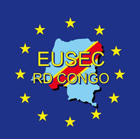New orientation for the Eusec mission in Congo
 (BRUSSELS2) The Political and Security Committee (PSC) has approved a new orientation for the European Security Sector Reform Assistance Mission (EUSEC) in Congo. Mission which is extended until September 30, 2012. When it was created in May 2005, this mission was essentially designed to support the process of integrating ex-combatants into a single force, the Armed Forces of the Democratic Republic of Congo ( FARDC), in a difficult context the pacification of eastern Congo and support the ongoing reform process in the army. These objectives have not yet been fully achieved but are committed to. In the meantime, a new FARDC reform plan has been proposed, extending from 2009 to 2025. It is this process that the new EUSEC mission will have to support with new objectives: the modernization of logistics, the revival of the training system, and the fight against sexual violence (1).
(BRUSSELS2) The Political and Security Committee (PSC) has approved a new orientation for the European Security Sector Reform Assistance Mission (EUSEC) in Congo. Mission which is extended until September 30, 2012. When it was created in May 2005, this mission was essentially designed to support the process of integrating ex-combatants into a single force, the Armed Forces of the Democratic Republic of Congo ( FARDC), in a difficult context the pacification of eastern Congo and support the ongoing reform process in the army. These objectives have not yet been fully achieved but are committed to. In the meantime, a new FARDC reform plan has been proposed, extending from 2009 to 2025. It is this process that the new EUSEC mission will have to support with new objectives: the modernization of logistics, the revival of the training system, and the fight against sexual violence (1).
In this first phase, EUSEC carried out work, discreet but necessary, on the census and identification of members of the armed forces (with the distribution of identity cards), the re-establishment of the payment chain (necessary to ensure that everyone receives their pay) and various support, particularly in terms of the network (computers, etc.). An important component was devoted to supporting the re-establishment of the training circuit with the rehabilitation and restarting of certain premises of the school of application at the Higher Military Center (CSM) in Kinshasa - a project essentially supported by the British - and a non-commissioned officer school at Kitona. The objective now is to recreate an administration/logistics school and the military academy for officers, in Kananga in the province of Kasai Occidental.
Sail reduction

In terms of the structure of the mission, it remains substantially identical with a management, an administrative and logistical support department, an experts department, and an advice and assistance department. The project unit - already in place - has been approved and above all strengthened. Most staff will be based in Kinshasa, but deployment to eastern DRC of some experts is also planned.
The number of people assigned to the mission could decrease from 60 international experts (including 50 seconded by Member States) and 55 local employees to 50 international experts (including 40 seconded by Member States) and 36 local employees.
The mission's budget is 12,6 million euros for the first year (until September 2011).
No merger of the two EU missions
The European Union wanted to go further and merge its two missions EUSEC and EUPOL (police) but the Congolese authorities opposed it, preferring to have 2 different profiles to respond to Congolese interlocutors. On the European side, however, we are quite willing to pool certain expertise, "pool certain functions" (as mentioned in the draft decision) to avoid duplication. It is also a question of applying the new system resulting from the Treaty of Lisbon, by working more closely with the EU ambassador on the spot. Thus the head of the EUSEC mission will act as the ambassador's "defence adviser".
(1) According to the draft decision, the mission has 5 objectives:
- maintaining support at the strategic level;
- support for the consolidation of the administration and the establishment of a human resources management system based on the work in progress;
- support for the modernization of logistics;
- support for the revival of the training system, particularly for executives, with, in particular, support for the School of Administration and Military Academy project in Kananga and studies for the School of Logistics in Kinshasa;
- the pursuit, to their extent, of activities related to the fight against impunity in the areas of respect for human rights, including sexual violence.
(Nicolas Gros-Verheyde)
